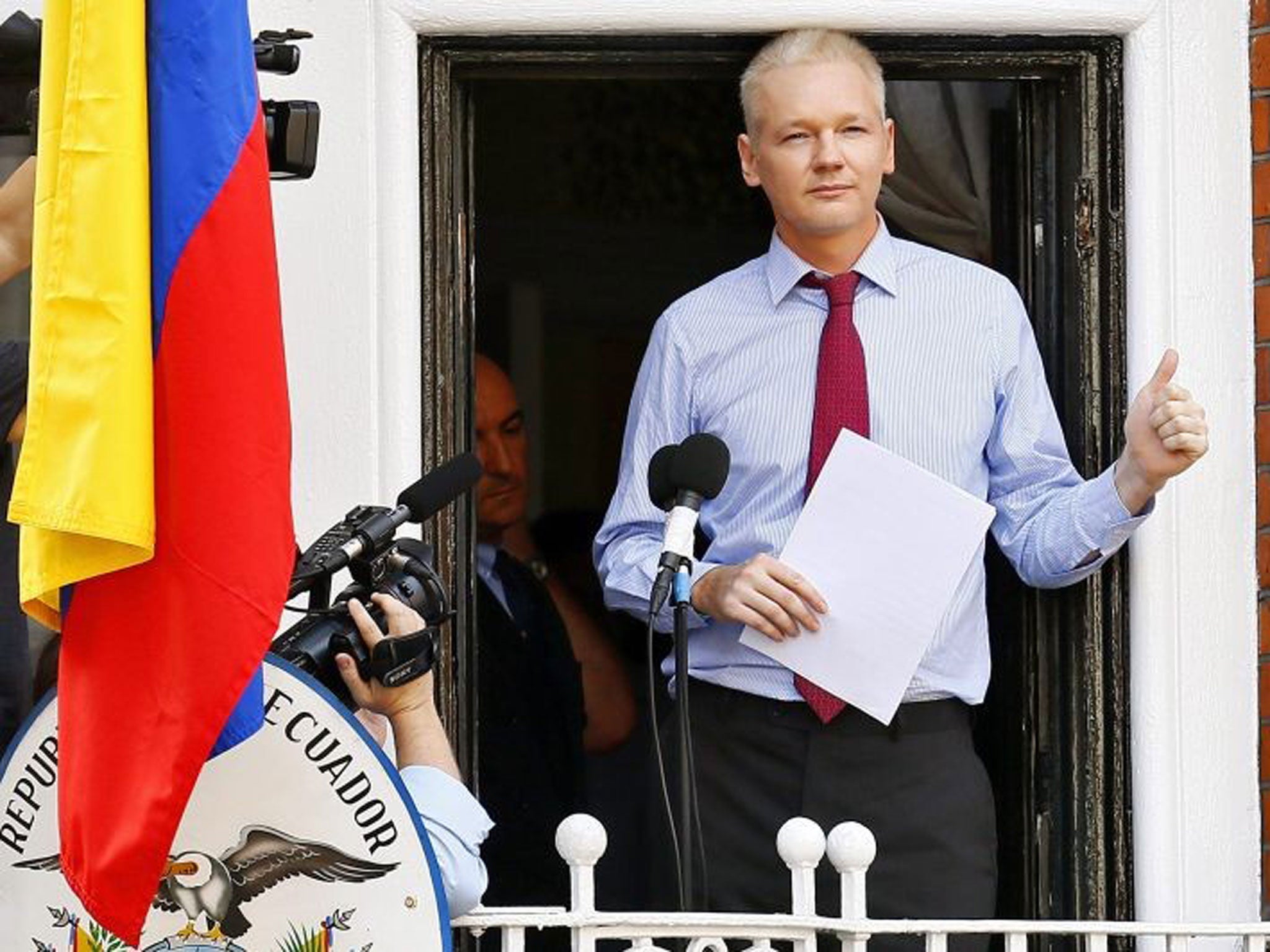Britain is 'softening' to my plight, claims Wikileaks founder Julian Assange on anniversary of Ecuador embassy stay
After a year in Ecuador’s embassy, WikiLeaks founder hoping for deal on extradition to Sweden

Your support helps us to tell the story
From reproductive rights to climate change to Big Tech, The Independent is on the ground when the story is developing. Whether it's investigating the financials of Elon Musk's pro-Trump PAC or producing our latest documentary, 'The A Word', which shines a light on the American women fighting for reproductive rights, we know how important it is to parse out the facts from the messaging.
At such a critical moment in US history, we need reporters on the ground. Your donation allows us to keep sending journalists to speak to both sides of the story.
The Independent is trusted by Americans across the entire political spectrum. And unlike many other quality news outlets, we choose not to lock Americans out of our reporting and analysis with paywalls. We believe quality journalism should be available to everyone, paid for by those who can afford it.
Your support makes all the difference.Julian Assange, the Australian-born founder of WikiLeaks who faces extradition to Sweden over alleged sex crimes, said on Sunday he believed the UK’s position on his plight is “softening”.
Mr Assange has been living under the protection of the Ecuadorian embassy in London for the past year, and has been granted political asylum by the country – a move that has sparked a diplomatic spat between London and Quito, as Britain has refused to grant him safe passage to the South American country.
As he prepares to mark the first anniversary of his arrival at the embassy, since when he has not set foot outside, he claimed a deal could still be reached between Ecuador and the UK “within a year” that would see him leave.
“I think the position in the UK is softening,” he told the AFP news agency. “Of course, it will never publicly humiliate the United States by offering me safe passage in a manner that doesn’t seem to be forced.”
Mr Assange was visited in the embassy yesterday by Ecuador’s Foreign minister, Ricardo Patino, who will today hold talks with the British Foreign Secretary William Hague.
A spokesman for the Foreign & Commonwealth Office said: “We remain committed to seeking a diplomatic solution to this situation and must also ensure that our laws are followed. The UK has a legal obligation to extradite Mr Assange to Sweden to face questioning over allegations of sexual offences, and the British police must fulfil this.”
Mr Assange’s WikiLeaks website was responsible for the biggest leak in US history after it published secret files of America’s wars in Iraq and Afghanistan and a huge cache of diplomatic cables.
He is worried that authorities in Sweden – who want to question him over sexual allegations by two women, which he denies – will extradite him to the US where he could face questioning over the publication of classified documents.
In the interview, he described Edward Snowden, the former CIA employee responsible for leaking details of the US’s massive internet surveillance programme, as a “hero”. Mr Assange said: “The British Government should be offering Mr Snowden asylum, not excluding him from their borders. Edward Snowden is a hero – his revelations disclose something that is important to almost everyone in the world.
“I am sure if you asked the people of the UK what they wanted, they would be in favour of protecting Mr Snowden. The UK doesn’t want to say no to the US under any circumstances – not in my case, and not in the case of Mr Snowden.”
Police maintain a 24-hour guard over the embassy building in Knightsbridge in case Mr Assange leaves – an operation which has so far cost the British taxpayer £3m.
Join our commenting forum
Join thought-provoking conversations, follow other Independent readers and see their replies
Comments